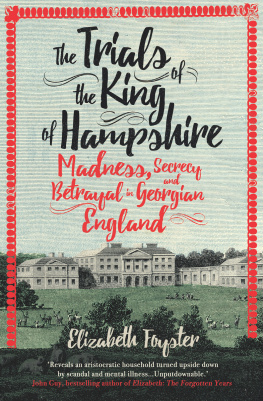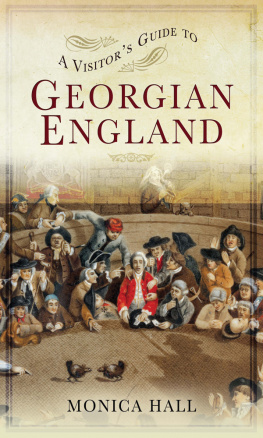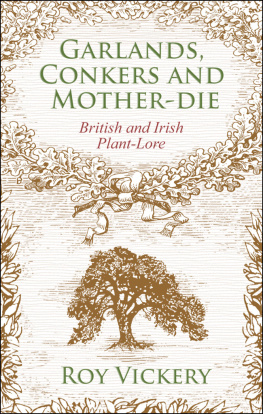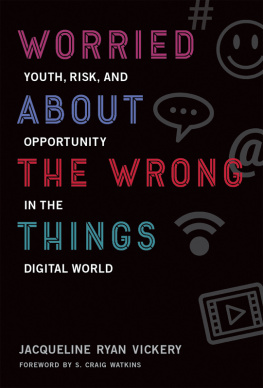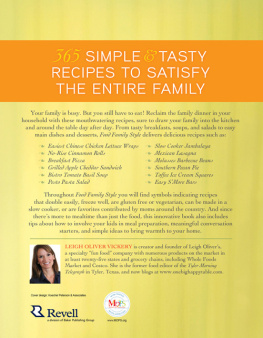Praise for
BEHIND CLOSED DOORS
In history the study of homes and home life has undergone a revolution in the past few decades. One of the leading figures in that revolution is Amanda Vickery. Who can resist a book that describes one diarist as a confirmed grumbletonian. One would have to be a confirmed grumbletonian indeed not to find enlightenment and pleasure on every page of this book.
Judith Flanders, Sunday Telegraph
Vickery's prose is a model of its kind: as elegant and as bracing as a brisk rub-down in a gilt bath with carbolic soap. Some of the considerable achievements of this important book are Vickery's sheer mastery of the sources, the originality of her materials and methodology, and the provocations contained in her seductive prose.
Helen Berry, University of Newcastle, Institute of Historical Research,
Reviews in History
Vickery's great skill lies in combining a sharp forensic eye with the ability to spot and tell stories, moving between different scales so smoothly that you can't see the joins. And then there is the wit of the thing. Few academic historians manage to be so funny without compromising the seriousness of their work. She did it 10 years ago in The Gentleman's Daughter and she has done it again here. It was worth the wait.
Kathryn Hughes, Guardian
Men and women were both under the illusion that they were in charge of the Georgian home. Amanda Vickery makes a delightful study of these roles and homes and draws from a huge range of period sources as she delves into the lives both of the rich and of the everyday Georgian.
Nicola Sanders, House and Garden
[Vickery] describes Enlightenment domesticity and the growth of elegant taste with wonderful aplomb and infectious enthusiasm [Behind Closed Doors] is especially gorgeous in unusual and telling illustrations.
Christina Hardyment, History Today
What Vickery illuminates, often brilliantly, always entertainingly and through a myriad of examples from many different people, are the ways in which family and gender relations were played out in Georgian England.
Stella Tillyard, Times Literary Supplement
Professor Vickery is a thorough and disciplined academic who has trawled through many often obscure archives and tapped unusual or long neglected reservoirs of information. But not for a moment is she overwhelmed by the mighty volume of her research. She weaves it all into a compelling narrative packed with anecdote, strange characters and all manner of weird and wonderful details about Georgian home life.
Dan Cruickshank, Country Life
Comparison between Vickery and Jane Austen is irresistible. In a sense, this is history on the scale of the famous square of ivory on which Austen claimed the ideal novel should be created: graceful, delicate, sparkling with sprezzatura.
As with Austen's novels, though, Vickery's research into the landscapes of Georgian domestic politics reveals a great deal more than embroidery going on in the drawing-room. This book is almost too pleasurable, in that Vickery's style and delicious nosiness conceal some seriously weighty scholarship.'
Lisa Hilton, Independent
[Vickery] opens resolutely shut doors and peeps into the private lives of servants, aristocrats and the polite and middling sorts Ms. Vickery's greatest achievement is to upend the notion that the home was divided into separate spheres in which men were responsible for brick and stone while women ruled over domestic life Few writers have such a talent for transforming the driest historical source into a gripping narrative.
Andrea Wulf, International Herald Tribune
In supple, elegant prose [Vickery] repeatedly shows that domestic routines and choices were intertwined with political and public participation. Home life could be content or cruel, run smoothly or lurch through disasters, but it was the perennial obsession of every Georgian man and woman. A book full of fascinating discoveries and radically important conclusions.
Kate Williams, Historians' Favourites, History Today

For Hester, Rosamond and Dinah
PUBLISHED WITH ASSISTANCE FROM THE ANNIE BURR LEWIS FUND
Copyright 2009 by Amanda Vickery
6 8 10 9 7
All rights reserved.
This book may not be reproduced, in whole or in part, in any form (beyond that copying permitted by Sections 107 and 108 of the U.S. Copyright Law and except by reviewers for the public press), without written permission from the publishers.
Designed by Sarah Faulks
Printed in Great Britain
Library of Congress Cataloging-in-Publication Data
Vickery, Amanda.
Behind closed doors: At home in Georgian England / Amanda Vickery. p. cm.
Includes bibliographical references and index.
ISBN 978-0-300-15453-5 (cl: alk. paper)
ISBN 978-0-300-16896-9 (pbk)
1. HouseholdsEnglandHistory18th century. 2. Great BritainHistory17141837. 3. Social statusEnglandHistory18th century. 4. Sex roleEnglandHistory18th century. 5. Social controEnglandHistory18th century. 6. Material cultureGreat BritainHistory18th century. 7. EnglandSocial conditions18th century. I. Title.
HQ 615.v53 2009
306.810942'09033dc22
2009018592
A catalogue record for this book is available from The British Library
CONTENTS
ACKNOWLEDGEMENTS
This book would simply not have been possible without the miraculous generosity of the Leverhulme Trust. Before I tore open the award letter in 2003, I would never have imagined a historian could be so grateful for the invention of Sunlight soap. The Leverhulme Research Readership, 20047, gave me the time to take a large project from scratch to completion, and the travel expenses to truffle about in more than sixty archives, comparing the full English breakfasts of the great British Bed and Breakfast.
I conceived this project under the umbrella of the AHRC Centre for the Study of the Domestic Interior, which ran between 2001 and 2006, of which I was an assistant director. The Centre was a collaboration between three partner institutions in London Royal Holloway, University of London, the Royal College of Art and the Victoria and Albert Museum. Its aim was to develop new histories of the home, its contents and its depiction, staging seventeen international conferences, symposia and events, the V&A exhibition The Renaissance at Home, the collection Gender, Taste and Material Culture in Britain and North America (Yale, 2006) and a free online database, www.rca.ac.uk/csdi/didb/, an analytical survey of the ways in which the interior has been represented in text and image since the Renaissance in Europe and North America. The interdisciplinary encounter that the centre was built on and pursued in all its activities was a constant challenge to my training in social and economic history. I certainly had to fight for recognition of the Georgians, wedged between the glories of Renaissance and the frisson of Modernity. My hearty thanks to all the fellows and associates: Marta Ajmar, Jeremy Aynsley, Helen Clifford, Quintin Colville, Flora Dennis, Jane Hamlett, Karen Harvey, Ann Matchette, Liz Miller, Giorgio Riello, Carolyn Sargeantson and John Styles. I am especially grateful to Jane Hamlett who surveyed the advertisements in Yorkshire newspapers for me, and to Karen Harvey who reviewed a run of the Ladies Magazine.
I owe most, however, to Hannah Greig. Her intellectual energy, fiendish competence and (let's be honest) beautiful manners underpinned all the conferences with which I was involved. But do not be taken in by her company demeanour; she is a steely critic. It took me twenty-four hours to recover from her verdict on the first draft of my Introduction: I just don't care for it, Amanda. Amidst an array of commitments at the CSDI , she offered me crucial research assistance, re-connoitring provincial archives in Aylesbury, Bedford, Birmingham, Chelmsford, Colchester, Doncaster, Hull, Keele and Matlock, ploughing through inventories in the Borthwick at York and Poor Law records in Leeds and Wakefield. We have snickered side by side in many a record office and debriefed over triumphs and disappointments: over sandwiches on stations, salads in LA and martinis in Manhattan there have to be some perks, after all.



